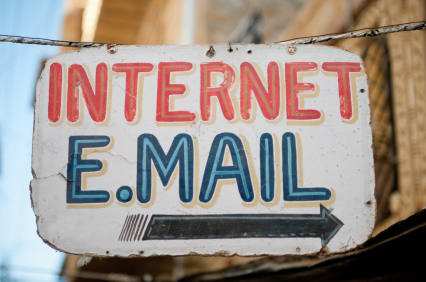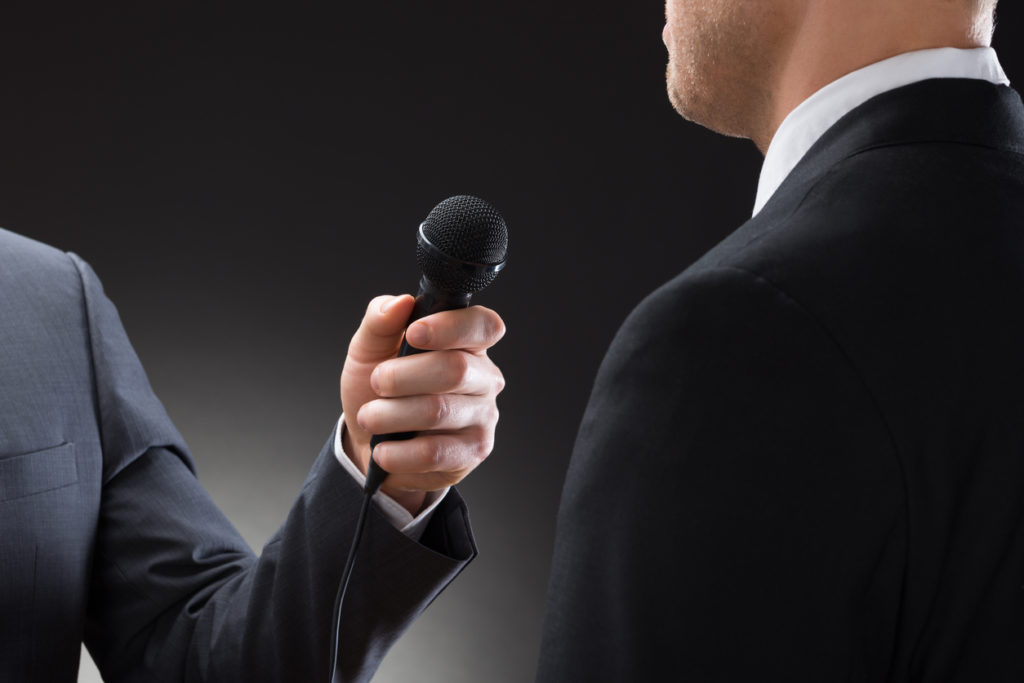Newspapers Are Banning Email Interviews. Should You?
Reporters for the college newspaper The Daily Princetonian are no longer allowed to conduct interviews through email. Neither are reporters for The Stanford Daily or The Oracle, the University of South Florida’s paper.
What’s behind this seemingly urgent push for “no email interview” policies? To find out, writer Mark Lisheron wrote a thoughtful and well-researched piece for the April issue of the American Journalism Review. (Disclosure: I’m quoted in the article.)
Unsurprisingly, his investigation revealed deep passions on both sides of the debate. Supporters of the email ban argued their side thusly, as summarized by Lisheron:
“E-mail deprives the reporter of all of the sensory advantages of the other interview styles. Facial expressions, gestures, posture. The sound and the cadence of the voice. The emphasis on words or phrases. The pauses.
As fast and convenient as they are, e-mail interviews are never really conducted in real time. The timing of the response, the allowance for measured and edited replies create an artificiality readers recognize.”
The then-editor of The Daily Princetonian, Henry Rome, explained his decision to ban email interviews by writing:
“Interviews are meant to be genuine, spontaneous conversations that allow a reporter to gain a greater understanding of a source’s perspective. However, the use of the email interview — and its widespread presence in our News articles — has resulted in stories filled with stilted, manicured quotes that often hide any real meaning and make it extremely difficult for reporters to ask follow-up questions or build relationships with sources.”
On the other side of the debate are those who make the case for email interviews. One past president of the National Information Officers Association said this, as summarized by Lisheron:
“Reporters, he says, have no inherent right to a statement from him. He reserves the right to ask for questions in writing and provide answers in writing, usually through e-mail.
Departments like his are trying harder to control the message, not because they are deceptive and evil, but because relationships with the media have changed.”
And another public information officer told him that getting questions in writing is:
“…not only a way to form more complete and accurate answers, but to be better able to parry inquiries designed to elicit specific responses.”
So who’s right? Both sides have a point, and the truth is somewhere in the middle. Like anything else (say, PowerPoint slides) the problem is less with the tool itself than with the way that tool gets used. That said, far too many spokespersons rely on email. They think they’re maintaining control by only offering written statements—and sometimes they are—but too often, they’re unnecessarily undermining their relationships with the press.
You can read more about my view on this issue in my article called “Three Reasons to Interview by Phone Instead of Email.”
I hope you’ll read Mark’s excellent article in full. You can find it here. And please leave your thoughts on this topic in the comments section below.





I see both sides here. I work in media relations with a large government department…we get a lot of media calls (nearly three dozen yesterday) from major national outlets every day. The subject matter experts don’t have time to grant every interview, because if they did, they would not have any time left in a day to do their actual jobs. 😉 We have to make decisions on a case-by-case basis. If it’s an issue of national importance that we need someone out on, we can either do a technical briefing (basically a news conference by phone where journalists can ask questions directly), or have our spokesperson/expert do a tour of interviews (we did this yesterday and it took nearly four hours to conduct seven interviews). Sometimes it would be a complex issue where it’s difficult to find any one person who is able to provide all the information (so email is good because it allows us to gather information from the necessary variety of sources), or it might be that time/schedules doesn’t allow for us to have the expert interviewed. When it comes to student journalists, we always do our best to provide them with the information they need (as we do with ALL journalists), but given the sheer volume we deal with, not a lot of interviews would be granted by high-level officials/experts to a student journalist, particularly if it’s at a time when there are a number of hot files. I would love to have a more collegial and personal relationship with journalists, but with the volume of calls, and the variety of journalists I deal with, it’s difficult to nurture that relationship beyond a select few key people.
I think you’re right, Brad: The truth lies somewhere in the middle.
But in this very long piece I was disturbed to see no mention of the difference between the SPOKEN and the WRITTEN word. This, to me, is the essence of the problem.
People write differently than they speak and the spoken word is usually much more engaging and often more interesting than the written one. That’s what we miss when we don’t get “in person” interviews. And while I hate to see bans, I also hate to see the bafflegab that passes for quotes when people are interviewed via email.
The purpose of interviewing sources is to explore the topic in greater depth and learn from people who are knowledgable. When interviews are conducted by e-mail the organic process that happens during in-person interviews or phone interviews is stifled.
I am also intrigued by the viewpoints expressed by those representing public information roles. Inherently, as stated in the title of the role, the purpose is to provide public information. I can see in some cases where requiring written questions and responses would be warranted, but in many cases limiting the ways that media can receive information is a disservice not only to reporters, but to the public.
Thankfully, I am a journalist writing stories that often don’t require a direct quote, but I will say that if an office or campaign wants to play games with only doing email questions, then I will use what I must along with “according to an emailed statement” instead of “said Joe Smith.” I think that conveys the circumstances and level of candor to the reader.
I never would have survived in higher education if I couldn’t get a statement via email. I see both sides, but I think that a lot of journalists pride themselves on being able to ambush, which you can’t do on email. I do believe that journalists have a right to hear from me if they want, but I don’t believe it needs to be in person. Are they banning phone interviews too? And I disagree with the fact that email quotes are not real-time. Sometimes I can email a lot quicker than I can be reached in person. I just think it’s unrealistic.